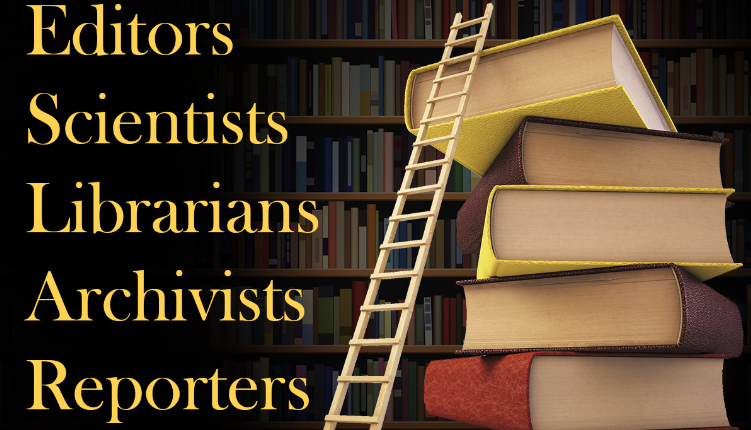Do you find yourself constantly lost in the pages of a good book? Do you relish the feeling of being transported to another world, learning new things, and exploring ideas through the written word? If so, you’re not alone. Reading is a beloved hobby for many, offering a multitude of benefits such as reducing stress, improving cognitive function, and expanding one’s knowledge and empathy.
But what if you could turn your love for reading into a career? Imagine spending your days immersed in books, using your passion and skills to make a living. The good news is that there are numerous careers that not only allow but require extensive reading. From editing and writing to research and education, opportunities abound for those who want to make a living doing what they love

What You’ll Learn
In this article, we’ll explore the top 10 careers for book lovers that involve extensive reading. You’ll discover:
- The key responsibilities and skills required for each career
- The diverse work environments and opportunities available
- How each career allows you to indulge your love for reading
- The potential for specialization and growth within each field
- Insights and tips for pursuing a reading-related career
By the end of this article, you’ll have a better understanding of the various career paths that align with your passion for reading. Whether you’re a recent graduate, a seasoned professional looking for a change, or simply someone who wants to turn their hobby into a livelihood, this guide will provide valuable information and inspiration to help you take the next step.
So, let’s dive in and explore the exciting world of careers for book lovers!
1. Editor and Proofreader

Job Description and Responsibilities
Editors and proofreaders play a crucial role in the publishing industry, ensuring that written content is polished, accurate, and engaging. As an editor, you’ll review and revise manuscripts, articles, or other documents to improve clarity, coherence, and overall quality. This may involve suggesting changes to structure, tone, and style, as well as fact-checking and verifying sources.
Proofreaders, on the other hand, focus on the final stages of the editing process. They meticulously review content for grammatical, spelling, and formatting errors, ensuring that the final product is error-free and ready for publication.
Required Skills
To excel as an editor or proofreader, you’ll need:
- Exceptional reading comprehension and attention to detail
- Strong command of grammar, spelling, and punctuation
- Familiarity with various writing styles and formats
- Ability to provide constructive feedback and collaborate with authors
- Proficiency in word processing and editing software
Work Environments
Editors and proofreaders can find employment in a variety of settings, such as:
- Publishing houses
- Magazines and newspapers
- Digital media companies
- Advertising and marketing agencies
- Freelance or remote work
Opportunities for Reading
As an editor or proofreader, you’ll have the chance to read a wide range of content, from novels and non-fiction books to articles and blog posts. This exposure to diverse topics and genres can broaden your knowledge and keep your love for reading alive.
2. Lawyer

Importance of Reading in Legal Careers
Lawyers rely heavily on their ability to read, analyze, and interpret complex legal documents. From case law and statutes to contracts and legal briefs, extensive reading is a fundamental part of a lawyer’s job. Whether you’re preparing for a trial, negotiating a deal, or advising a client, your success as a lawyer depends on your ability to quickly and accurately process written information.
Types of Reading Material
As a lawyer, you’ll encounter a variety of legal texts, such as:
- Case law and court opinions
- Statutes and regulations
- Contracts and agreements
- Patents and intellectual property documents
- Legal research and academic articles
Attention to Detail and Critical Reading Skills
The legal profession demands a keen eye for detail and the ability to critically analyze written content. Lawyers must be able to identify key facts, arguments, and precedents within legal documents, and use this information to build strong cases and provide effective counsel to clients.
Specializations That Involve Extensive Reading
Some legal specializations that involve particularly extensive reading include:
– Corporate law
Intellectual property law
- Tax law
- Constitutional law
- Appellate law
3. Researcher/Scientist

Keeping Up with Current Developments
In the fast-paced world of research and science, staying up-to-date with the latest findings and developments is essential. Researchers and scientists must continuously read academic journals, conference proceedings, and other publications in their field to remain informed and contribute to the advancement of knowledge.
Diverse Research Domains
Extensive reading is crucial across various research domains, such as:
- Academic research (e.g., humanities, social sciences, natural sciences)
- Market research and consumer insights
- Medical and pharmaceutical research
- Environmental and ecological studies
Referencing Prior Research
Conducting research often involves building upon the work of others. By reading and referencing prior research articles and reports, scientists and researchers can identify gaps in knowledge, develop new hypotheses, and contribute original findings to their field.
Collecting Data and Forming Hypotheses
Extensive reading helps researchers collect and analyze data from various sources, such as experimental results, surveys, and case studies. By synthesizing this information, they can form well-supported hypotheses and draw meaningful conclusions.
What You’ve Learned So Far
In this article, we’ve covered three of the top 10 careers for book lovers that involve extensive reading:
- Editor and Proofreader
- Key responsibilities and skills required
- Diverse work environments and opportunities
- Exposure to a wide range of content and genres
- Lawyer
- Importance of reading in legal careers
- Types of legal reading material
- Attention to detail and critical reading skills
- Specializations that involve extensive reading
- Researcher/Scientist
- Keeping up with current developments
- Diverse research domains
- Referencing prior research
- Collecting data and forming hypotheses
As we continue to explore the remaining seven careers, you’ll gain a comprehensive understanding of the various opportunities available for turning your love for reading into a fulfilling profession. Each career path offers unique challenges and rewards, allowing you to indulge your passion while making a meaningful contribution to your chosen field.
So, let’s dive back in and discover what other exciting careers await book lovers who want to make a living doing what they love!
4. Teacher/Professor

Importance of Staying Informed
Teachers and professors have a responsibility to provide their students with accurate, up-to-date information. To effectively educate others, they must continually read and stay informed about developments in their subject area. This involves reading textbooks, academic journals, and other educational resources to ensure that their knowledge remains current and comprehensive.
Developing Curricula and Lesson Plans
Extensive reading is essential for teachers and professors when creating curricula and lesson plans. They must carefully review and select appropriate materials to support their teaching objectives, taking into account factors such as student level, course requirements, and educational standards.
Grading and Providing Feedback
Teachers and professors spend a significant amount of time reading and evaluating student work, such as essays, research papers, and exams. Providing constructive feedback and guidance requires close reading and attention to detail, as well as an understanding of the subject matter and assessment criteria.
Opportunities for Specialization
Educators can specialize in various subjects and levels, each involving extensive reading:
- Early childhood education
- Primary and secondary education
- Higher education (e.g., undergraduate, graduate, post-doctoral)
- Special education
- English as a Second Language (ESL) instruction
5. Librarian

Curating and Managing Collections
Librarians are responsible for curating and managing library collections, which involves extensive reading and research. They must stay informed about new book releases, industry trends, and user preferences to make informed decisions about acquisitions and collection development.
Staying Updated on Trends
To provide the best possible service to library patrons, librarians must keep abreast of new releases, bestsellers, and literary trends. This involves reading book reviews, publisher catalogs, and industry publications, as well as engaging with the reading community through events and social media.
Assisting with Research
Librarians play a crucial role in assisting patrons with research and reference inquiries. This often involves conducting extensive reading and research on behalf of users, using both print and digital resources to locate relevant information and materials.
Potential for Specialization
Librarians can specialize in different types of libraries and collections, such as:
- Academic libraries
- Public libraries
- School libraries
- Special libraries (e.g., law, medical, corporate)
- Archives and rare book collections
6. Writer/Author

Conducting Research
Writers and authors often conduct extensive research to inform their work, whether they are writing fiction or non-fiction. This may involve reading historical documents, scientific papers, or other relevant sources to ensure accuracy and authenticity in their writing.
Reading in Your Genre
To write effectively in a particular genre, authors must be well-versed in the conventions, trends, and styles of that genre. This involves extensive reading of other works in the same category, both classic and contemporary, to understand what resonates with readers and to draw inspiration for their own writing.
Revising and Editing
The writing process involves multiple rounds of revision and editing, which requires authors to closely read and analyze their own work. This self-evaluation helps writers refine their craft, improve clarity and coherence, and ensure that their final product is polished and engaging.
Diverse Writing Careers
There are many different writing careers that involve extensive reading, such as:
- Journalism
- Copywriting and content creation
- Technical writing
- Grant and proposal writing
- Creative writing (e.g., novels, short stories, poetry)
What You’ve Learned So Far
In this section, we’ve explored three more careers for book lovers that involve extensive reading:
- Teacher/Professor
- Importance of staying informed
- Developing curricula and lesson plans
- Grading and providing feedback
- Opportunities for specialization
- Librarian
- Curating and managing collections
- Staying updated on trends
- Assisting with research
- Potential for specialization
- Writer/Author
- Conducting research
- Reading in your genre
- Revising and editing
- Diverse writing careers
As we move into the final section of this article, we’ll cover the remaining four careers on our list. Each of these professions offers unique opportunities for book lovers to engage with the written word, broaden their knowledge, and make a meaningful impact in their field.
Whether you’re drawn to the analytical work of a book reviewer, the linguistic challenges of a translator, or the historical significance of an archivist, there’s a career path that aligns with your interests and skills.
So, let’s conclude our exploration of the top 10 careers for book
lovers and discover the final four professions that allow you to turn your passion for reading into a fulfilling livelihood.
7. Book Reviewer/Critic

Reading and Analyzing Books
Book reviewers and critics have the enviable job of reading and analyzing books as their primary responsibility. They closely examine the plot, characters, themes, and writing style of a book to provide informed and insightful commentary on its strengths and weaknesses.
Writing Reviews and Recommendations
After carefully reading and evaluating a book, reviewers and critics craft thoughtful, well-written reviews that offer a balanced perspective on the work. These reviews may be published in newspapers, magazines, blogs, or online platforms, helping readers discover new books and make informed reading choices.
Staying Current with Trends
To provide relevant and timely reviews, book reviewers and critics must stay current with new releases and literary trends. This involves reading widely across genres, attending book events and conferences, and engaging with the literary community.
Potential for Specialization
Book reviewers and critics can specialize in particular genres or types of books, such as:
- Literary fiction
- Mystery and crime novels
- Science fiction and fantasy
- Non-fiction (e.g., history, biography, self-help)
- Children’s and young adult literature
8. Translator

Reading and Comprehending Source Material
Translators are responsible for accurately conveying the meaning and tone of a text from one language to another. This requires extensive reading and a deep understanding of the source material, as well as a mastery of both the source and target languages.
Ensuring Accurate and Culturally-Appropriate Translations
In addition to linguistic accuracy, translators must also consider cultural nuances and context when adapting a text for a new audience. This involves extensive reading and research to ensure that the translated work is both faithful to the original and appropriate for the target culture.
Diverse Translation Opportunities
Translators can work with a wide range of written materials, such as:
- Literary works (e.g., novels, poetry, plays)
- Legal and technical documents
- Websites and digital content
- Subtitles and scripts for film and television
Combining Language Skills and Love for Reading
A career in translation allows language enthusiasts to combine their love for reading with their linguistic skills. By bridging the gap between cultures and making works accessible to new audiences, translators play a vital role in the global exchange of ideas and literature.
9. Archivist

Collecting and Preserving Historical Documents
Archivists are responsible for collecting, organizing, and preserving historical documents and records. This involves extensive reading and research to identify and evaluate materials of historical significance, such as manuscripts, letters, photographs, and digital files.
Providing Context and Assistance to Researchers
In addition to preserving historical materials, archivists also play a crucial role in making these resources accessible to researchers and the public. This involves reading and analyzing documents to provide context and assistance to those seeking information about a particular topic or time period.
Diverse Archival Settings
Archivists can work in a variety of settings, such as:
- Libraries and universities
- Museums and historical societies
- Government agencies
- Corporate archives
- Non-profit organizations
Combining Love for Reading with Historical Preservation
A career as an archivist allows book lovers to indulge their passion for reading while contributing to the preservation of history. By ensuring that valuable documents and records are properly maintained and accessible, archivists help to safeguard our cultural heritage for future generations.
10. Literary Agent

Discovering New Talent
Literary agents play a crucial role in the publishing industry by discovering new authors and talent. They read manuscripts, book proposals, and query letters from aspiring writers to identify promising projects that have the potential to captivate readers and attract publishers.
Nurturing Authors’ Careers
Once a literary agent signs an author, they work closely with them to develop their career and navigate the publishing process. This involves reading and providing feedback on drafts, negotiating publishing contracts, and advocating for the author’s best interests throughout their literary journey.
Identifying Market Trends
In addition to reading manuscripts and proposals, literary agents must stay informed about current market trends and reader preferences. By reading widely across genres and keeping up with industry news, agents can identify emerging themes, genres, and opportunities in the ever-evolving world of publishing.
Building Author-Client Relationships
Successful literary agents build strong relationships with their authors based on trust, mutual respect, and a shared passion for storytelling. By providing guidance, support, and career advice, agents help authors navigate the complex and competitive landscape of the publishing industry.
With the addition of Literary Agent, the top 10 careers for book lovers that involve extensive reading offer a comprehensive overview of diverse and fulfilling opportunities to turn a love of reading into a rewarding profession. Each of these careers combines a passion for books with unique skills and responsibilities, providing a pathway for book lovers to engage with literature in meaningful and impactful ways. From editing and teaching to writing and archiving, there is a wealth of career paths available for those who are drawn to the written word.
Other Reading-Related Careers
In addition to the careers we’ve explored in depth, there are many other professions that involve extensive reading and may appeal to book lovers. Some examples include:
- Literary Agent: Reading and evaluating manuscripts to discover new talent and represent authors in the publishing industry.
- Publishing Professional: Working in various roles within the publishing industry, such as editing, marketing, sales, or rights management.
- Scriptwriter/Screenwriter: Reading and analyzing source material to adapt it for film, television, or theater, as well as creating original scripts.
- Curriculum Developer: Reading and evaluating educational materials to create comprehensive and engaging curricula for schools and other learning institutions.
- Fact-Checker: Reading and verifying information in articles, books, or other publications to ensure accuracy and credibility.
- Indexer: Reading and analyzing books or documents to create a detailed and accurate index of key terms, names, and concepts.
- Reading Specialist/Literacy Coach: Working with students to assess and improve their reading skills, as well as providing guidance and support to teachers in developing effective literacy instruction practices.
Key Takeaways
- There are numerous careers that allow book lovers to turn their passion for reading into a fulfilling livelihood, including editor, lawyer, researcher, teacher, librarian, writer, book reviewer, translator, and archivist.
- Each reading-related career requires a unique set of skills and qualifications, but all involve the ability to read critically, analyze information, and communicate effectively.
- Pursuing a career that involves extensive reading offers opportunities for continuous learning and growth, as well as the chance to make a meaningful contribution to your chosen field.
- Building a successful career in a reading-related field requires dedication, hard work, and adaptability, but the rewards can be immeasurable for those who are truly passionate about books.
FAQs
Q: Do I need a specific degree to pursue a career that involves extensive reading?
A: The educational requirements for reading-related careers vary depending on the specific field and position. Some careers, such as teaching or librarianship, may require advanced degrees, while others, like writing or editing, may place more emphasis on skills and experience. Research the typical qualifications for your desired career path to determine the best educational route for you.
Q: Can I turn my love for reading into a freelance career?
A: Yes, many reading-related careers, such as writing, editing, and book reviewing, offer opportunities for freelance work. Building a successful freelance career requires self-discipline, marketing skills, and the ability to manage multiple projects and deadlines, but it can provide the flexibility and autonomy that many book lovers crave.
Q: How can I gain experience in a reading-related field?
A: There are many ways to gain experience in a reading-related field, such as internships, volunteer work, or entry-level positions. You can also build your skills and portfolio through freelance projects, writing for local publications, or starting your own blog or website. Seek out opportunities that align with your interests and career goals, and be proactive in showcasing your abilities to potential employers or clients.
Q: What skills are most important for success in a reading-related career?
A: While the specific skills required for reading-related careers vary, some common traits include strong reading comprehension, attention to detail, critical thinking, and effective communication. Depending on your chosen field, you may also need specialized knowledge, such as fluency in multiple languages for translation work or familiarity with historical research methods for archiving. Cultivate a well-rounded skill set that combines your love for reading with the practical abilities needed to excel in your desired profession.
Q: How can I stay informed about opportunities in reading-related fields?
A: To stay informed about opportunities in reading-related fields, join professional organizations, attend industry events and conferences, and follow relevant publications and websites. Network with others in your desired field, and be proactive in seeking out job listings or freelance opportunities. By staying engaged with the community and continuously learning about new developments and trends, you’ll be well-positioned to find and seize opportunities that align with your passions and goals.
Conclusion
In this article, we’ve explored the top 10 careers for book lovers that involve extensive reading, as well as several other reading-related professions. From editing and writing to research and education, these careers offer diverse opportunities for those who want to turn their passion for reading into a fulfilling livelihood.
Each of these careers requires a unique set of skills and qualifications, but they all share a common thread: the ability to read critically, analyze information, and communicate effectively. Whether you’re drawn to the creative process of writing, the analytical work of reviewing, or the historical significance of archiving, there’s a career path that aligns with your interests and strengths.
Pursuing a career that involves extensive reading allows you to indulge your love for books while making a meaningful contribution to your chosen field. You’ll have the opportunity to continuously learn and grow, as you explore new ideas, perspectives, and genres through the written word.
Of course, building a successful career in a reading-related field requires more than just a love for books. It takes dedication, hard work, and a willingness to adapt to the changing landscape of the industry. But for those who are truly passionate about reading and are committed to honing their skills, the rewards can be immeasurable.
So, whether you’re a recent graduate exploring your career options, or a seasoned professional looking to make a change, consider the many opportunities available for book lovers. With the right combination of passion, skills, and perseverance, you can turn your love for reading into a thriving and fulfilling career.











